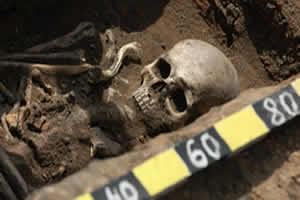Difference between Archaeology and Genealogy
Key Difference: Archaeology deals with the studies of ancient art, customs and science through the process of recovery and analysis of things left behind. Genealogy is the study of family and is a continuous tracing of ancestors.

Archaeology and Genealogy are generally rather indistinct and confusing. Both the terms deal with history, but what is the meaning of both the words?
Archaeology ends where history begins. It means archaeology is a study of human past and present, through the materials, which humans left behind. The materials that humans used, made, or modified are studied by archaeologists. Archaeology is a part of anthropology because it studies individuals and their different cultures, even if limited to the past. They analyze skeletal remains and artifacts, such as tools, pottery, cave paintings, and ruins of buildings. The term is derived from the Greek word archaiologia, where archaio means “ancient” and logos means “science” and “study”.
Archaeology is a humanistic discipline in its purposes, but it uses the methods of science and for this reason is also a science. It provides an insight of the ancient times by analyzing the remained materials belonging to that time. It aims to preserve the history for present and future learning. Archaeology is not only both a humanistic discipline and a science, it is also a passion. Its main purpose is to understand humanity better, but achieving this many other "minor" purposes, even if initially unforeseen, can be reached.
 Genealogy is the study of history of families, and is also known as a 'family history'. The term is derived from the Greek word genealogos, where genea means “generation” and logos means “knowledge”. Genealogists deal with the study about a family by using historical records, oral traditions, and other records to gather necessary information.
Genealogy is the study of history of families, and is also known as a 'family history'. The term is derived from the Greek word genealogos, where genea means “generation” and logos means “knowledge”. Genealogists deal with the study about a family by using historical records, oral traditions, and other records to gather necessary information.
The results are often displayed in charts or written narratives. The motive of a genealogist is to preserve the past of a family, so that the future generation will have the historical background about their ancestors. In simple terms, genealogy is the study of families in genetic and historical context. It is the study of family structures, and the changing roles of men, women, and children in diverse cultures. It is the story of who we are and how we came to be, as individuals and societies.
Below are some of the main practical triggers as to why people search for their ancestors:
- Validate family stories – to determine if family stories about their ancestors are true.
- Famous people – find out if they are related to someone famous.
- Historical event – gain an improved understanding of an ancestor’s participation in a famous historical event.
- Trace a family inheritance – to determine genealogical proof of a family connection for potential heirs.
- Find birth parents – determine the birth parents of an adopted child.
- Community history – document a community history by considering the families that founded and inclined the community.
Comparison between Archaeology and Genealogy:
|
|
Archaeology |
Genealogy |
|
Description |
Archaeology is the study of human past and present, through the materials, which humans left behind. |
Genealogy is the study of family and is a continuous tracing of ancestors. |
|
Origin |
Greek archaiologia – "ancient" and logia "word" or "study." |
Greek genealogos – Genea means “generation” and logos means “knowledge”. |
|
Pronunciation |
ahr-kee-ol-uh-jee |
jee-nee-ol-uh-jee |
|
Fields |
|
There are different types of records that are included in genealogy. They are:
Birth record Death record Marriage and divorce record
|
|
Famous personalities |
|
|
Image Courtesy: forensicoutreach.com, blog.findmyancestor.com









Add new comment